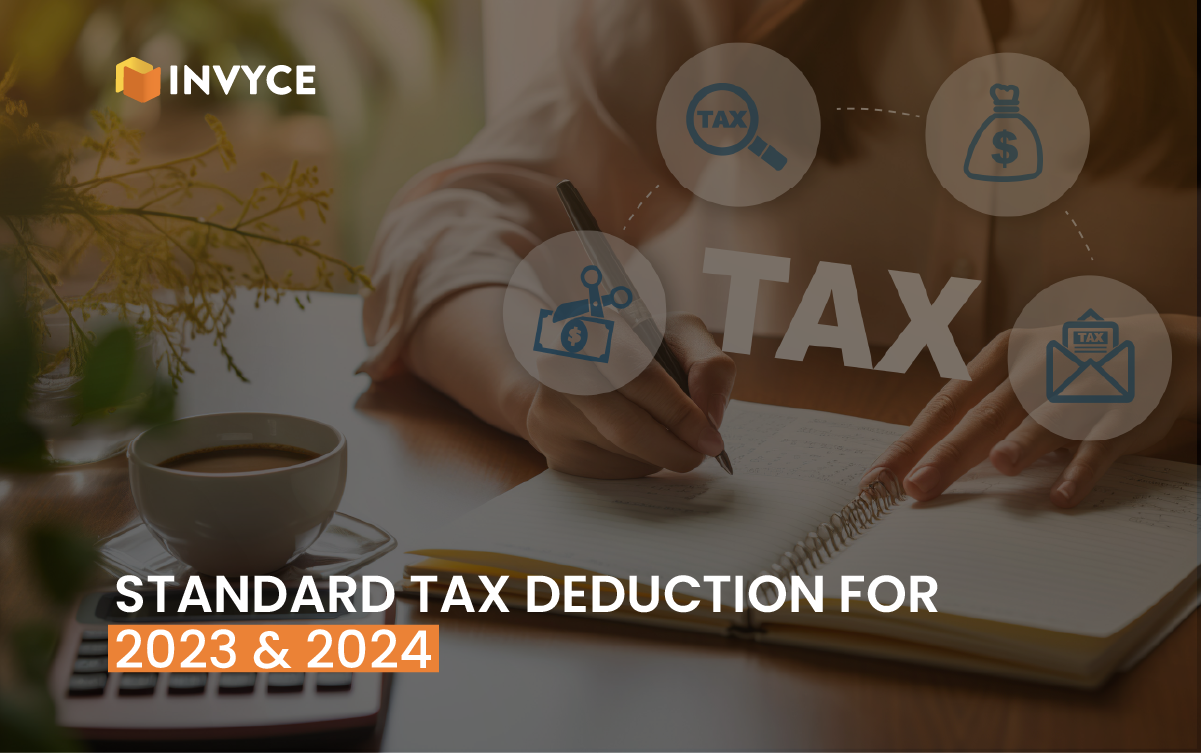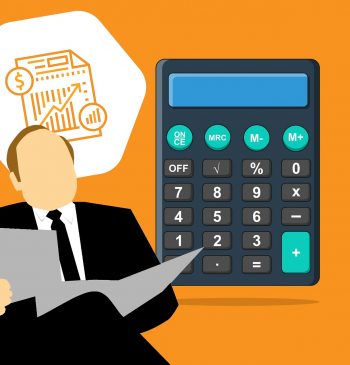28 Dec

Tax deduction is the most common financial planning concern among individuals and business owners. Deductions are helpful because they reduce the part of your income on which the government imposes taxes, including both federal and sometimes state taxes.
The Tax Cuts and Jobs Act (TCJA) increased the standard deductions, which helped many people save taxes. These new amounts are in effect until December 31, 2025. However, it’s important to note that the TCJA did eliminate several other deductions and personal exemptions. You can save more on taxes by being smart about when you claim deductions and using other opportunities to reduce what you owe.
Table of Contents
What is a Tax deduction?
A tax deduction is an expense you can subtract from your total income to lower your taxable income, reducing the amount of taxes you owe. Examples include mortgage interest, medical expenses, and charitable contributions. Deductions vary by country and must adhere to specific rules and eligibility criteria. They help individuals and businesses minimize their tax liability legally.
For the tax year 2024, here are the standard deduction amounts:
The standard deduction for 2023 & 2024
| Filling status | 2023 Standard deduction | 2024 Standard deduction |
|---|---|---|
| Single; Married filing separately | $13,850 | $14,600 |
| Married filing jointly && Surviving Spouses | $27,700 | $29,200 |
| Heads of household | $20,800 | $21,900 |
Additional standard deduction for people over age 65
Taxpayers who are age 65 or older or blind can claim an additional standard deduction of $1,500 for 2023 or $1,550 for 2024.
| Filling status | Taxpayer is | Additional standard deduction in 2023 | Additional standard deduction in 2024 |
|---|---|---|---|
| Married Filing Jointly or Married Filing Separately | Blind | $1500 | $1550 |
| Married Filing Jointly or Married Filing Separately | 65 0r older | $1500 | $1550 |
| Married filling Jointly or Marred filling separately | Blind and 60 or older | $3000 | $3100 |
| Single or Head of Household | Blind | $1850 | $1950 |
| Single or head of household | 65 or older | $1850 | $1950 |
| Single or head of household | Blind and 65 or older | $3700 | $3900 |
Standard Deduction vs. Itemized Deductions
Many taxpayers choose the standard deduction over itemized deductions for a few significant reasons. First, it eliminates the need to meticulously track every possible qualifying expense throughout the year. Secondly, for many, the standard deduction amount surpasses the total they would achieve by tallying up all their individual tax-deductible expenses.
This is especially relevant due to the Tax Cuts and Jobs Act’s restrictions on certain deductions. For instance, it capped state and local tax deductions at $10,000 and limited the mortgage interest deduction for properties purchased after December 15, 2017, to the first $750,000 of debt (or $375,000 if married and filing separately), down from the previous limit of $1 million.
It’s important to note that you must choose between the standard deduction or itemized deductions; you cannot claim both. Opting for itemized deductions enables you to list all your tax-deductible expenses for the year, which may include property tax, medical expenses, eligible charitable donations, gambling losses, and other costs that affect your final tax amount.
Home & personal tax deductions
Internet and Phone Bills Deduction
You can deduct some of your phone and internet expenses for your business, even if you don’t claim a home office deduction. To do this, only deduct the expenses that are directly related to your business. For example, you can deduct the costs of using the internet for your business website.
If you have just one phone line, you can’t deduct your entire monthly bill, which includes both personal and business use. The IRS says you can’t deduct the cost of your basic local phone service for the first phone line in your home, even if you have a home office. However, you can deduct the full cost of long-distance business calls or the cost of getting a second phone line that’s only used for your business.
Rent deduction
If you rent an office space or equipment for your business, you can deduct the rental costs from your taxes.
You can’t deduct rent for property you own, even if it’s only a part of it. And the rent you pay has to be a reasonable amount. This means it should be a fair price that you’d also pay to someone you don’t have a close relationship with.
Interest charges
If you take a loan from a bank for your business, the interest you pay on that loan can be deducted from your taxes. But if you use the loan for both business and personal reasons, you can only deduct the interest that matches the part used for your business.
It’s important to keep track of how you use the loan money because you can’t deduct the interest for personal expenses. However, if you use a credit card for business purchases, you can deduct the interest on those purchases.
Remember, it’s always better to use your own money and avoid paying interest if you can. Getting a tax deduction only gives you some of your money back, not all of it. So, try not to borrow money unless you really need to.
Vehicle Use Deduction
Using your car for business purposes can result in a significant tax deduction, which is an important benefit. This is important because your business income affects two types of taxes:
personal income taxes and self-employment taxes. This includes Social Security and Medicare taxes as a self-employed worker in your rideshare company. By taking full advantage of your auto business use deduction, you can reduce the amount of tax you pay.
Conclusion
The article also highlights specific home and personal tax deductions, emphasizing the importance of correctly attributing expenses related to business activities, such as internet and phone bills. Deductible costs for rent, interest charges on business loans, and vehicle use for business purposes are also explored. By being aware of these deductions and their eligibility criteria, individuals and businesses can make informed financial decisions, ultimately leading to potential tax savings. Overall, staying informed about tax laws and maximizing available deductions can contribute significantly to effective financial planning and tax management.
Marjina Muskaan has over 5+ years of experience writing about finance, accounting, and enterprise topics. She was previously a senior writer at Invyce.com, where she created engaging and informative content that made complex financial concepts easy to understand.
Related Post
Copyright © 2024 – Powered by uConnect



Marjina Muskaan